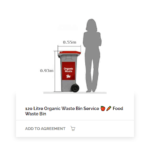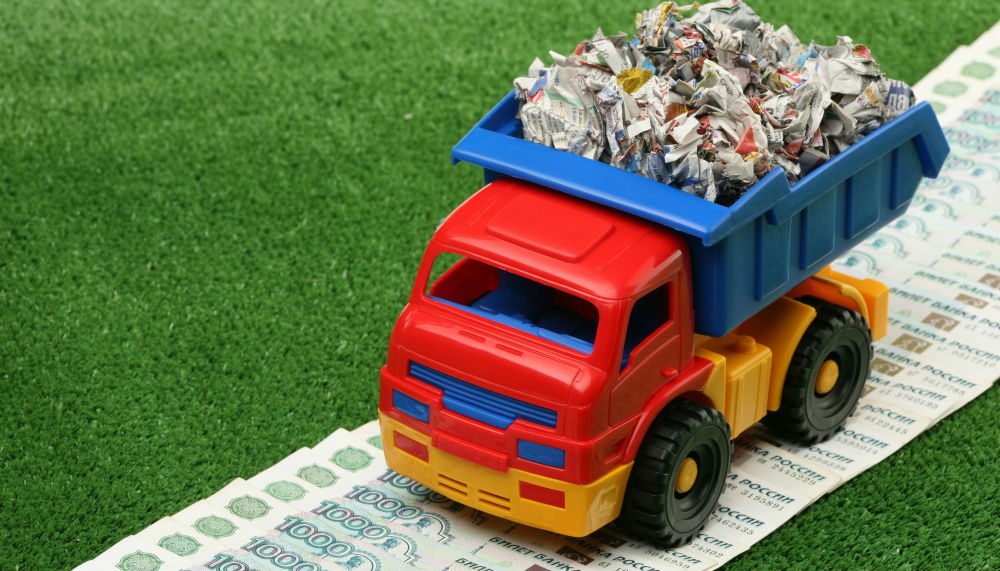Restaurant Waste Management 🥡 – How You Can Reduce Food Waste
Energy Disrupter
Restaurant Waste Management 🥡: Don’t you just hate it when you, as a restaurant owner, have quite an amount of leftover food? Not only does this cost you more money, but it also means that you stray away from the “green restaurant” image sought out by many. This can certainly result in you losing more money and respect from your employees, even.
With a little bit of planning and execution, you can ensure this never happens again. Furthermore, this will cause your restaurant business to increase profits and motivate your employees. Learn more about this by reading our blog.
>Download Now: Free PDF Business Owners Guide To Commingled Recycling Bin Services
A bit of info about Waster
Waster provides low cost and reliable bin collections such as restaurant waste management to small and medium companies throughout Australia. You can organise all your restaurant waste management needs (such as grease trap cleaning, sanitary bins, commingled, organic waste, general waste and cardboard on flexible 30 day agreements today -check out our options and pricing as below:
Restaurant waste management: food waste disposal and recycling
Did you know that each year, an individual employee of a typical restaurant or cafe can generate up to 17.5 cubic metres of waste? Additionally, another restaurant food waste fact: did you also know that food waste (obviously) tops the list of waste produced in a restaurant? We are looking at over 60 per cent going into a rubbish bin; that is quite absurd if you ask me.
As such, we at Waster think restaurants can do better with their waste management. With the 60 per cent food waste produced in restaurants, we should look to recycling as the option. But even before the food is cooked and served, you as a business owner should plan ahead and make sure you make little waste as possible.
[embedded content]
Remember: food waste harms the environment
Along with wasting money, losing customers, and demotivating employees, producing more food waste than usual also makes you a contributor to the harming of the environment.
Now, how is food waste harmful to the environment? A big part of that is because it produces methane, a potent greenhouse gas as famous as the dreaded carbon dioxide. Essentially, when food rots (i.e., decomposes), they release methane that goes into the air. This amount of methane from food waste will contribute to climate change.
Additionally, this can contaminate land, groundwater, as well as surface water. And finally, food waste also spells irresponsible resource consumption. This makes it all the more important to have an effective restaurant waste management plan.
Ensuring the reduction of food waste in your restaurant lessens this possibility. It will result in you caring more and doing more for your business AND the environment.
In the next section, we will discuss some tips in reducing waste in restaurants.
Tips on how you can reduce food waste in a restaurant
Of course, there is no perfect way to completely wipe out food waste. However, a little bit of waste management and recycling effort in your restaurant will take you places.
Here are some tips you can do for an effective restaurant waste management effort:
1. Plan ahead and do an audit
First and foremost, come up with a plan along with your employees – the ones directly involved in your efforts. Make sure you let them in on the plan so that you can work together. Team up with them.
Then, start off by tracking what food waste you usually produce in significant amounts. An example would be this: restaurant A produces more beef burger patty and buns waste because their burgers do not sell as much as their footlongs. The owner keeps track of this and ensures that a plan will be made.
The plan then is to reduce buying and preparing burgers and focus more on footlongs. This ensures that they lessen their burger food waste (i.e., beef patties, buns, lettuce, and tomatoes). Additionally, this also ensures that you reduce food waste before and after the customer consumption period.
2. Recycle!
This restaurant waste management step is for the unavoidable food waste not applicable to the first step.
Sometimes, you just cannot avoid waste. What you can do then is to recycle them! Basing off on the first example – there are unavoidable instances wherein footlongs do not sell in a day or in a few days. As a result, restaurant A produces more footlong (hotdog and bun) waste than usual.
Instead of throwing them in a rubbish bin, they did the best thing possible: recycle it. There are many ways you can recycle food. Let your employees eat leftover food if they want – a much better solution than throwing them in a rubbish bin. Or, you could donate them to food banks that help the needy. You can also feed them to pets if you have one at home.
In some cases, you can also reuse food. Cook unused bread into toast! And, you can cook up the veggies into other mouth-tasting recipes. There are lots of possibilities instead of throwing them away.
3. Avoid spoiling food
Spoiled food is pretty much useless – except for when you want to turn it as fertilisers. Other than that, you cannot save spoiled food; you can only prevent it from happening. Store them correctly by checking your fridge’s or freezer’s temperature if it is optimal or not for the food.
4. Sort out waste effectively
Use different bins when disposing of different types of waste. Separate the recyclables from the non-recyclables. After all, you do not want those that can be recycled from going into landfills. Additionally, you can categorise the recyclables; some may be paper and cardboard, food or organic waste, glass, or plastic.

Avail Waster’s services now!
We can help restaurants with their waste management and recycling needs. Our services include grease trap cleaning, paper and cardboard recycling, general waste, commingled recycling, medical waste, sanitary waste, nappy waste, and organic waste bin services. We also offer document destruction services and Terracycle boxes for those in need.
Conclusion on restaurant waste management
Restaurant waste management is very important. It can help you save money, motivate your workers, keep or even increase your customers, and more! So remember that the next time you see tonnes of food waste in your rubbish bin.



















